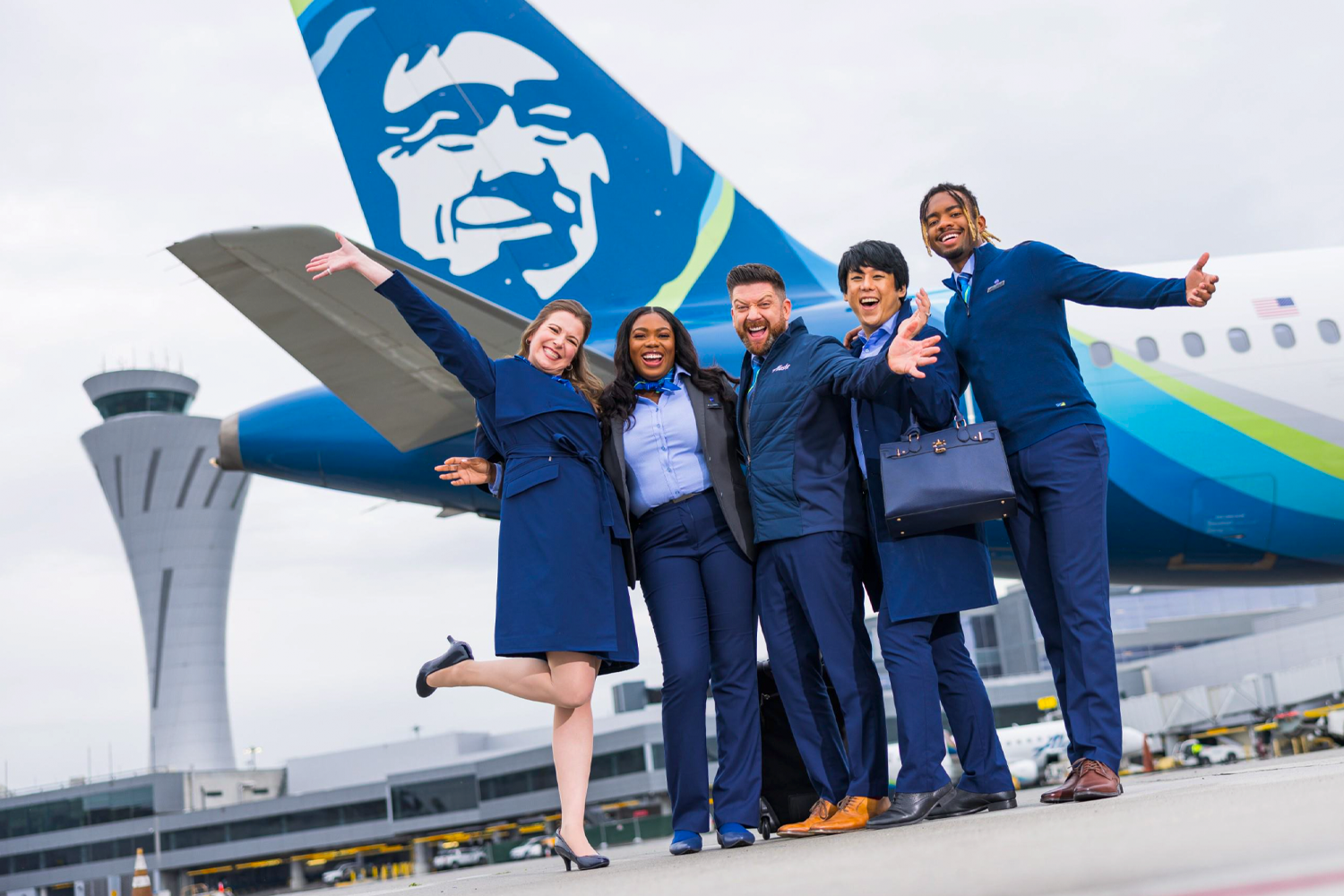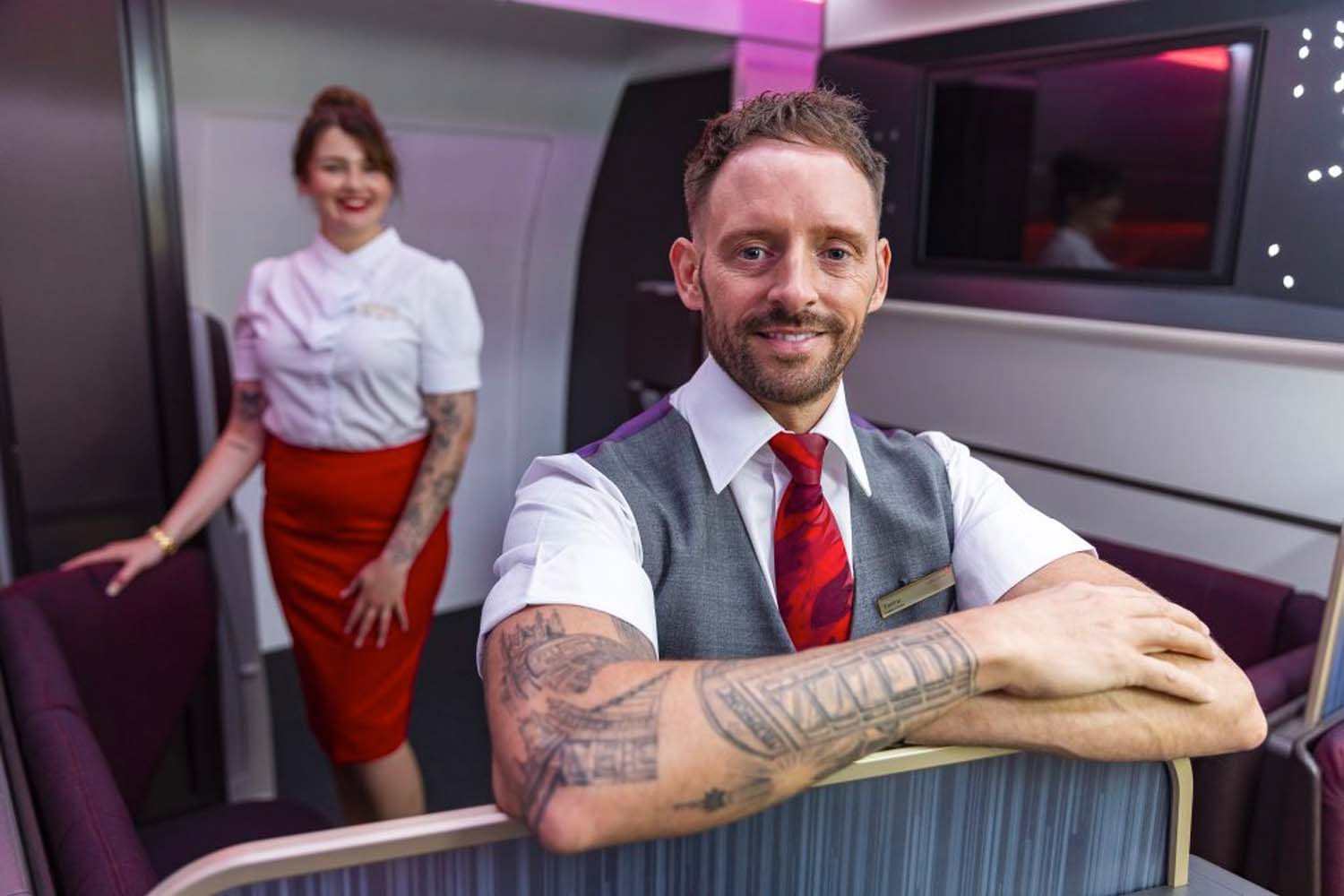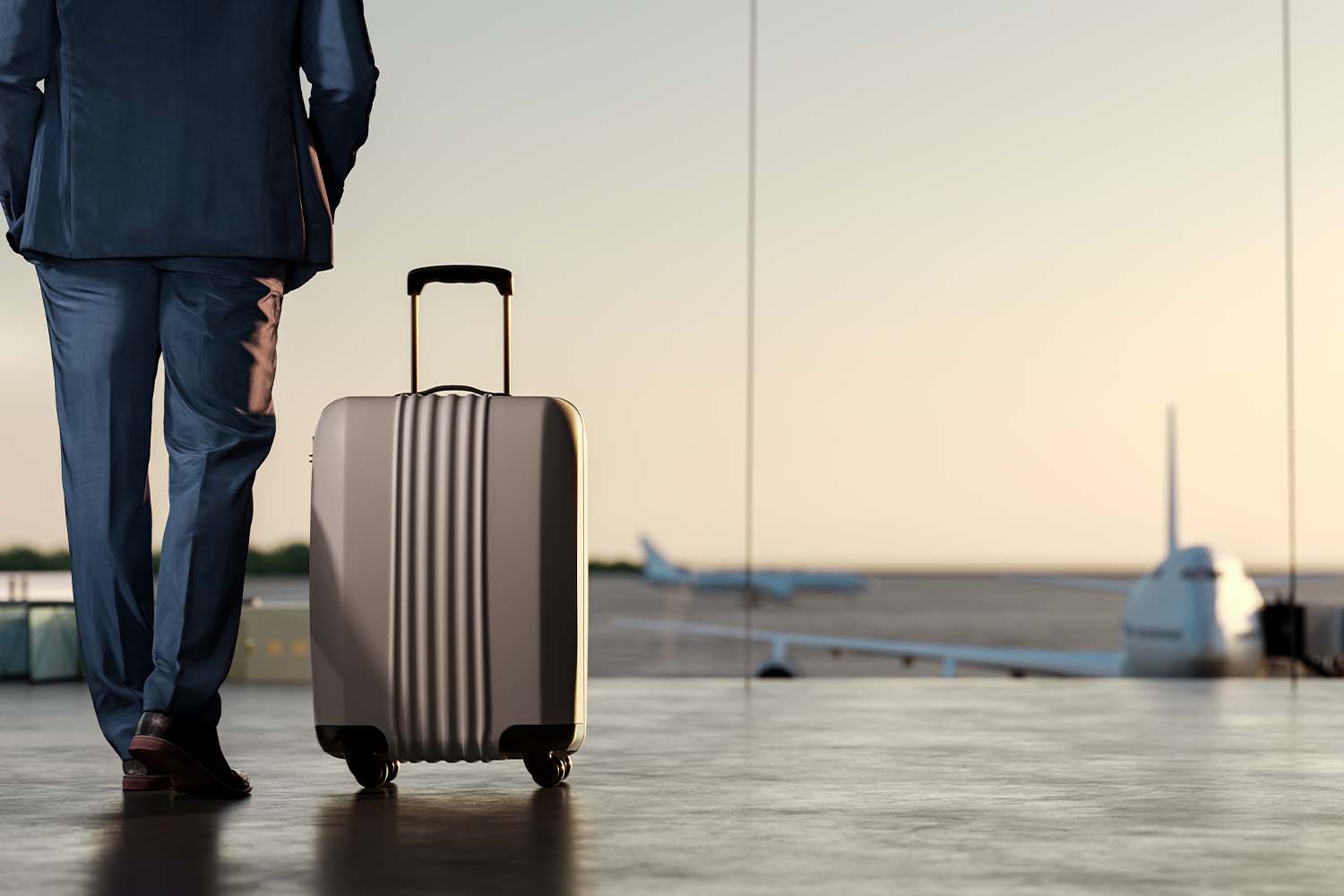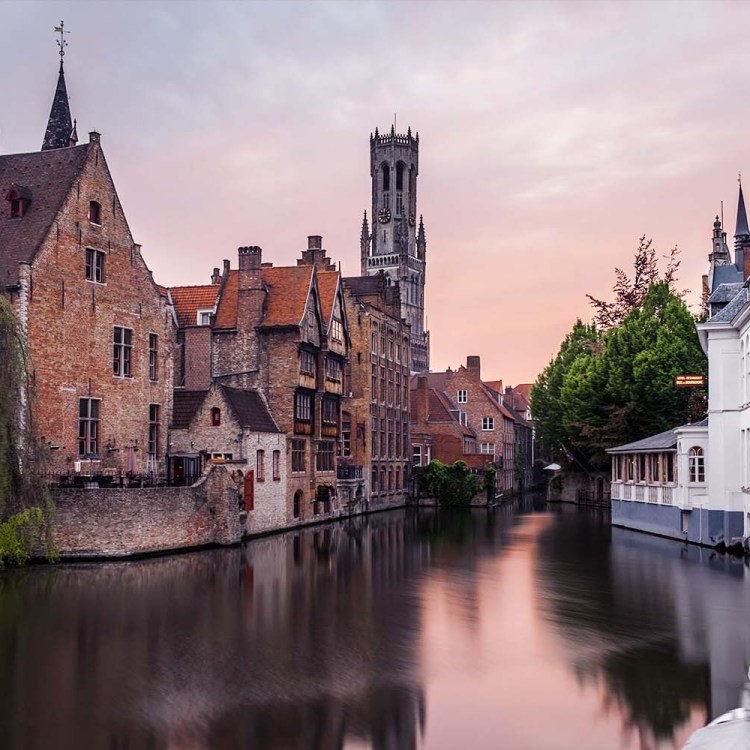This week, Virgin Atlantic announced that it had updated its uniform guidelines, for flight attendants and other flight staff, to provide more freedom and flexibility in individual and gender expression. Now, the British airline’s employees — cabin crew, pilots and ground staff — will be allowed to select whichever uniform they feel most comfortable in, per a report from CNN, “no matter their gender, gender identity, or gender expression.”
“We want to allow our people to wear the uniform that best suits them and how they identify and ensure our customers are addressed by their preferred pronouns,” Juha Jarvinen, Virgin Atlantic’s chief commercial officer, said in a press release. Optional pronoun badges will also be available for crew and passengers moving forward.
It’s not exactly an industry first. Alaska Airlines was deemed the first to scrap gendered uniforms, effectively beating everyone to the punch by…five months, which is not exactly a brag-worthy margin. But it doesn’t seem like anyone else is really raring to join them, either.
The fact is, (too) many airlines are still enforcing what are archaic and, frankly, bizarre conventionalities by 2022 standards. Earlier this year, flight attendants from Iberia launched a petition in protest of the airline’s compulsory high heels rule, following the carrier’s first uniform overhaul in nearly two decades. Back in February, the Australian Services Union took to Facebook to ask Qantas CEO Alan Joyce to amend their uniform policies and, more specifically, scrap the rules that require female staff to wear high heels, as well as hosiery and makeup. Emirates, too, recently came under fire after it came to light that their “Appearance Management Program” included a weight requirement for flight attendants. Even Alaska, for their part, had their feet held to the fire when, back in June 2021, the American Civil Liberties Union sent a letter alleging the airline’s “rigid set of ‘male’ and ‘female’ dress and grooming standards” violated Washington state law, which states that employers cannot discriminate based on sexual orientation, gender identity, appearance or expression.
And it’s not just airlines. There is also an abundance of passengers who agree that flight attendants should look a particular way. When Virgin Atlantic announced earlier this summer that they would be relaxing their stance on tattoos, it sent a (albeit small and weird) corner of the internet into a tizzy.
“Tattoos are disgusting if it’s not part of your culture. Why not topless flight air hostesses? Why stop at tattoos? I would love topless flight attendants,” someone commented on Matthew Klint’s post on Live and Let’s Fly relaying the news.
“The anti thesis [sic] of showing tattoos is not ignoring them, it’s telling people how disgusting they are. You cover your tattoos and we won’t talk about them. If you shove them in my face, we will talk about how disgusting they look. No one would tolerate a person who smells bad. No one should tolerate tattoos. One is an assault on olfactory senses and the other on visual senses. Tattoos are disgusting,” the same (unhinged) person later added.
All of this to say, while it seems like a feel-good story at face value, the larger conversation is clearly still far from over. Asking flight attendants to adhere to certain beauty standards for the sake of furthering the brand is exploitative and misogynistic. The only thing that actually matters is that they be willing and able to save passengers in the event of an emergency, which — for what it’s worth — is most definitely more easily accomplished in flats.
For more travel news, tips and inspo, sign up for InsideHook's weekly travel newsletter, The Journey.

















